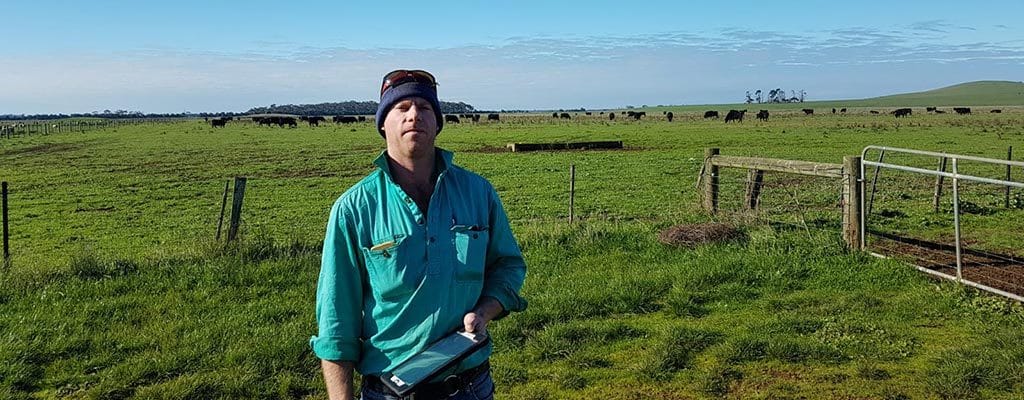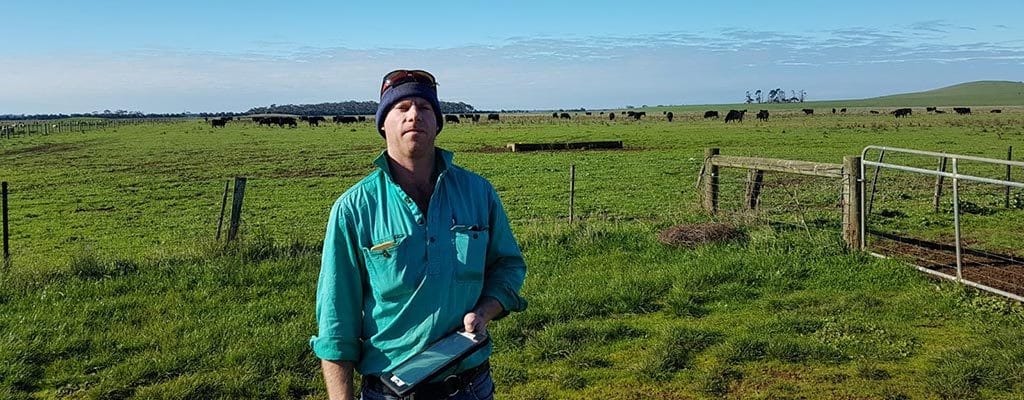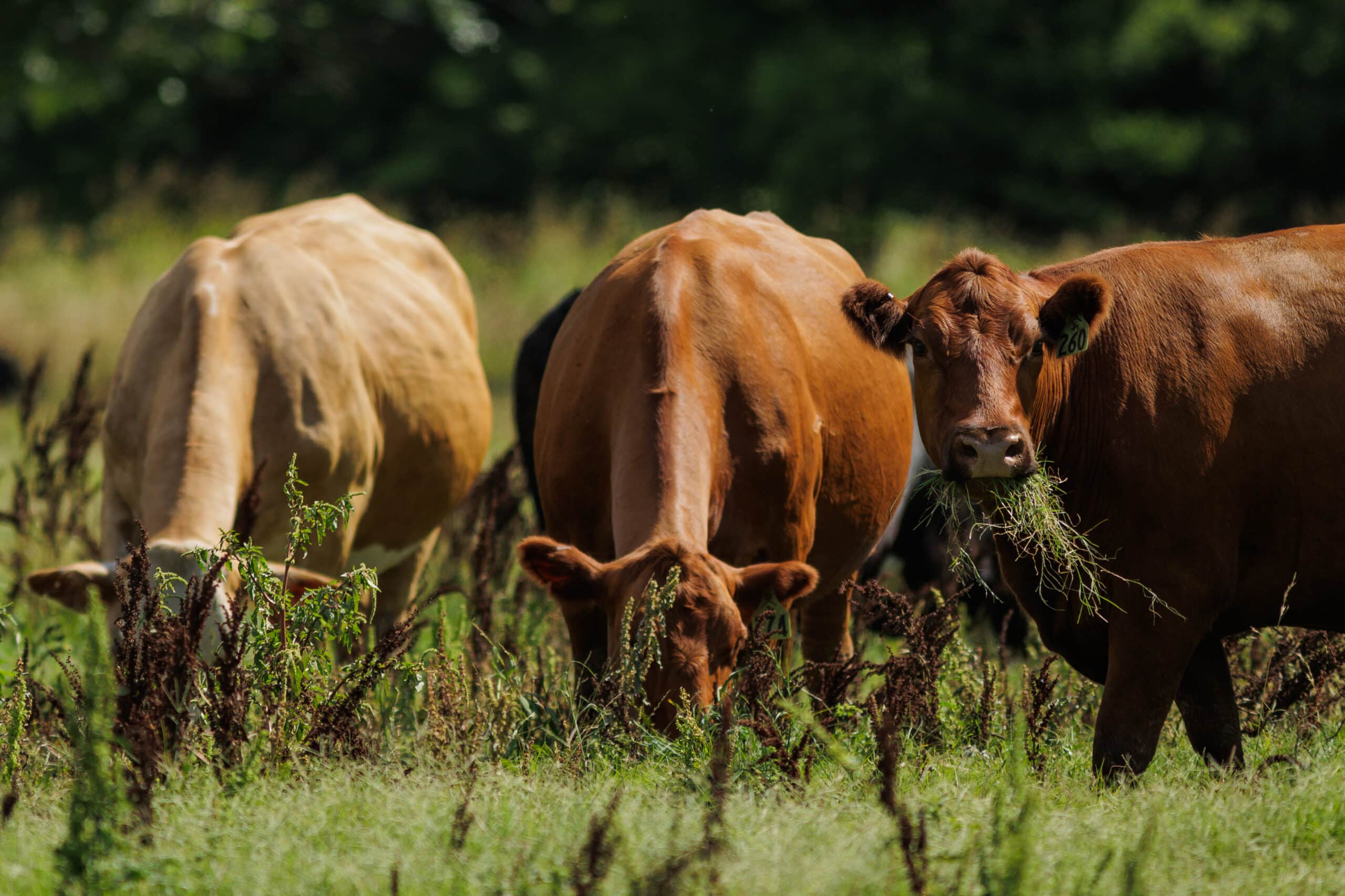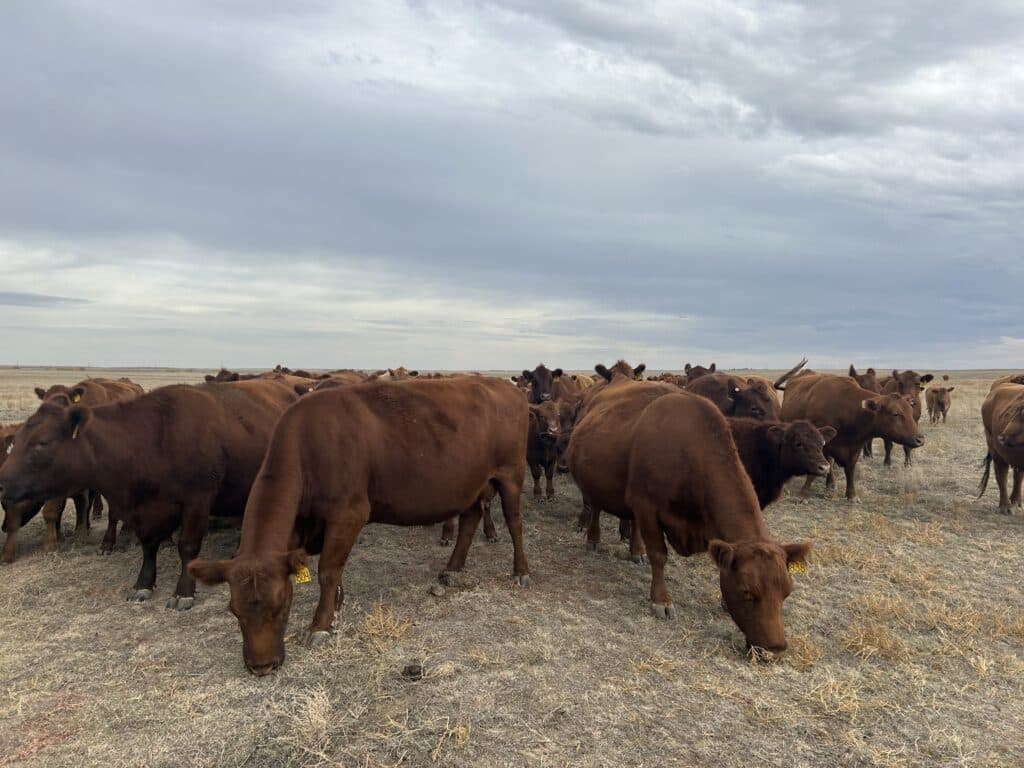How to become a Farm Manager

A guide to getting ahead in the agricultural industry
If you have a passion for the land, working as a farm manager can provide you with a rich and rewarding lifestyle. Tom Blackford manages Eddington, in south-west Victoria. We spoke to him about getting into the industry. “There’s a massive opportunity for young people in the industry and a real future for people like myself,” he says. “Young people haven’t really grasped it.”
Here’s how to make sure you don’t miss out.
Four tips for making it as a Farm Manager
Get practical experience
Tom left school before year 12 (which definitely isn’t necessary) and worked with a livestock contractor in South Australia. “It was a bit of an eye-opener, being 17-years-old and roughing it in some pretty ordinary shearing quarters for weeks at a time,” he says. From there he went jackerooing for four years. “I loved that: the people I met, the fun I had. And the practical skills I gained were pretty crucial.” That said, you still need to…
Get an Education
While Tom was never a fan of study his dad, also a farm manager, told him, “If you’re serious about continuing what you’re doing you need to get some tertiary education – you need that bit of paper.”
There’s a range of farm management courses offered by universities, TAFE’s and private colleges; Tom studied at Marcus Oldham College. The connections he made were as important as the knowledge he gained: “Most of my jobs after Marcus Oldham have been through ex-graduates or people associated with the college, so that networking has been really good.”
Put in the hard yards
It might sound obvious, but you need to show you have a strong work ethic. “It’s very hard to find people who want to get their hands dirty and really enjoy it,” Tom says. “Some people just do it because it’s a job and I think in agriculture it’s got to be more than a job.”
If you build a reputation as a good worker, the word will get around. And if you’re a bludger, that’ll spread even faster. “The industry is so small and if you have a bad name it can pretty much destroy your career,” Tom warns. “It’s a bit scary but everyone knows everyone’s business.”
Never stop learning
To be a successful farm manager, you have to keep up to date with industry trends and innovations. Tom is part of a local managers’ group that shares ideas and information: “A lot of figures get thrown on the table, so we look at each others’ balance sheets and talk about what they’ve done well, what they haven’t, and where they’re going forward.”
He’s also been ready to adopt new technology, including farm management software. “It’s a no brainer,” he says. “Whether it’s AgriWebb or something else, you need some reporting aid to do your job.”
That said, his first tip is still the most important: “You can have all the analytical stuff, but if you don’t have the practical experience you’re pushing the proverbial up a hill.”


